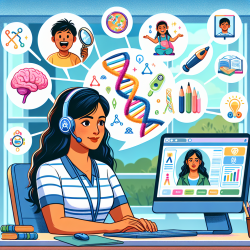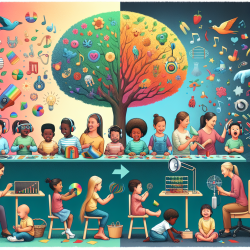As practitioners dedicated to fostering great outcomes for children, it’s essential to continually refine our skills and strategies. A recent study, "Challenges, Coping and Resources: A Thematic Analysis of Foreign Teachers’ Experience of Cultural Adaptation in China," provides valuable insights that can enhance our practice, particularly in the context of cultural adaptation.
The study explored the experiences of foreign teachers in Chinese universities, revealing five core themes: multiple challenges, mixed negative emotions, active coping and insulation, rich supportive resources, and personal traits. Let’s delve into how these findings can inform and improve our approaches.
1. Understanding Multiple Challenges
Foreign teachers faced numerous challenges, including language barriers, differences in teaching methods, and cultural perceptions of privacy and boundaries. Recognizing these obstacles can help us empathize with children and families from diverse backgrounds and tailor our interventions to be more culturally sensitive.
2. Addressing Mixed Negative Emotions
Teachers reported feelings of frustration, embarrassment, and anger. These emotions often went unexpressed and unaddressed. This highlights the importance of creating a supportive environment where children feel safe to express their emotions, and providing them with strategies to manage these feelings effectively.
3. Promoting Active Coping and Insulation
Effective coping strategies included seeking interpersonal support, developing localized teaching methods, and maintaining connections with their culture of origin. As practitioners, we can encourage children to build supportive relationships and integrate aspects of their cultural background into their learning experiences.
4. Leveraging Rich Supportive Resources
Foreign teachers benefited from convenient apps, supportive local agencies, and stable intimate relationships. Similarly, we should utilize available resources, such as technology and community support, to enhance the therapeutic experience for children.
5. Recognizing Personal Traits
Traits like positive thinking and flexibility played a significant role in adaptation. Encouraging resilience and adaptability in children can help them navigate cultural transitions more smoothly.
By integrating these findings into our practice, we can better support children’s cultural adaptation and emotional well-being. For those interested in a deeper understanding, I encourage you to read the original research paper, Challenges, Coping and Resources: A Thematic Analysis of Foreign Teachers’ Experience of Cultural Adaptation in China.










